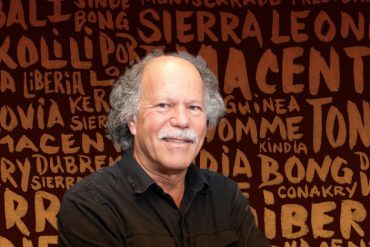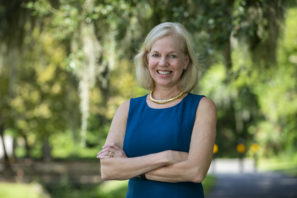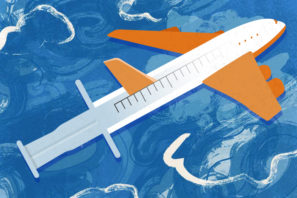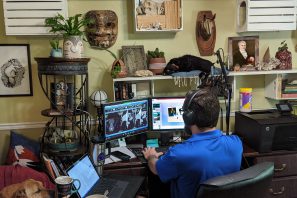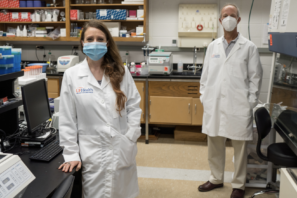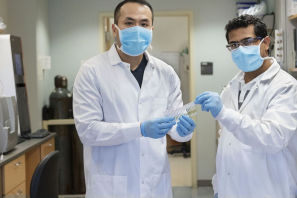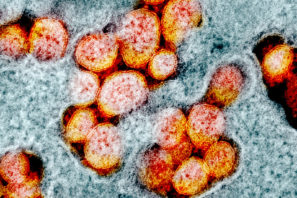“Travel restrictions delay, but do not stop the spread of the virus,” said Ira Longini, a member of the UF Emerging Pathogens Institute.
Meanwhile, an internal report by the Centers for Disease Control and Prevention concluded the delta variant is as contagious as chickenpox and more transmissible than the viruses that cause seasonal flu, the common cold and Ebola.
In a nationwide online survey, 74% of Americans who traveled for leisure said they were motivated by travel to get a vaccine.
Alex Fox-Alvarez leads online small group rounds with UF veterinary students on the surgery clinical clerkship who now required to learn remotely.
Three common antihistamine medications have been found in preliminary tests to inhibit infection of cells by the coronavirus that causes COVID-19.
Shark attack numbers have sunk to dramatic lows, likely a side effect of closed beaches and widespread quarantines, according to experts at the University of Florida’s International Shark Attack File.
In a project with the UF Informatics Institute SEED Fund, the Departments of UF Sociology and UF Linguistics will study different topics on COVID-19.
UF Health researchers begin developing an at-home test for coronavirus.
UF Associate Professor of Philosophy discusses ethical actions in difficult circumstances.
UF researchers Chang-Yu Wu, an engineer, and John Lednicky, a virologist, teamed up a decade ago to solve long-standing challenges in how air samples are collected and tested for viruses.
John Smulian, chair of the UF College of Medicine’s department of obstetrics and gynecology, provides important information on what is known about the novel coronavirus and pregnancy.
The number of American travelers who said domestic air travel should be avoided increased from 32% to 43% in three weeks, according to a new survey.

